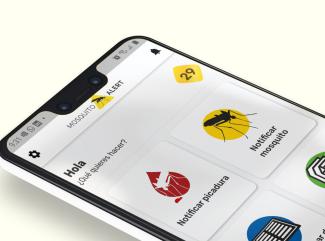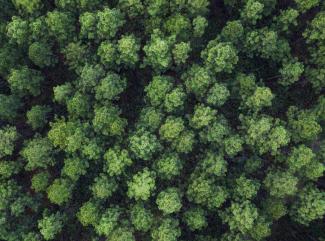Knowledge for innovation
Knowledge for innovation
We want the knowledge we generate to be useful for society. If you work in the forestry, agricultural, business, foundations or NGOs sectors, we help you develop innovative solutions for sustainability, to reduce carbon emissions, mitigate climate change and conserve biodiversity. We use environmental change models and develop scenarios to understand and support decision-making processes.

CREAF is an ideal partner to co-create innovations in the environmental field. We have ideas and resources that can help you make your proposals a reality. With our knowledge and scientific evidence, we can ensure that your projects are more successful, incorporating international experiences into your most creative ideas.
This includes innovation in fire risk management, sustainable forest management and nature-based solutions. In the field of agriculture, we promote the use of biochar to improve soil health and regenerative agriculture to ensure food security. In addition, we explore the potential of carbon farming, which sequesters carbon through sustainable land management. In the urban area, we are committed to smart cities and green cities, protecting ecosystem services and people's health.
We also act as consultants on environmental issues, as we do with the Ship2B accelerator or the EADA business school. Contact our transfer manager for this type of strategic alliances.
Related projects

Mosquito Alert
Mosquito Alert
Mosquito Alert is a citizen alert system to control the spread of two mosquito species. Through the app, citizens can report on adults and breeding sites, encouraging community participation in scientific research.
Natusfera
Natusfera
Several schools in Catalonia, the Basque Country and Spain use the Natusfera application to observe biodiversity in their curricula. Students document species and share findings, thereby contributing to scientific research.

DigiMedFor
DigiMedFor
DigiMedFor offers digital tools for the sustainable management of Mediterranean forest resources. It promotes practices that help conserve biodiversity and encourage responsible use of natural resources.
Success Stories
Success Stories




